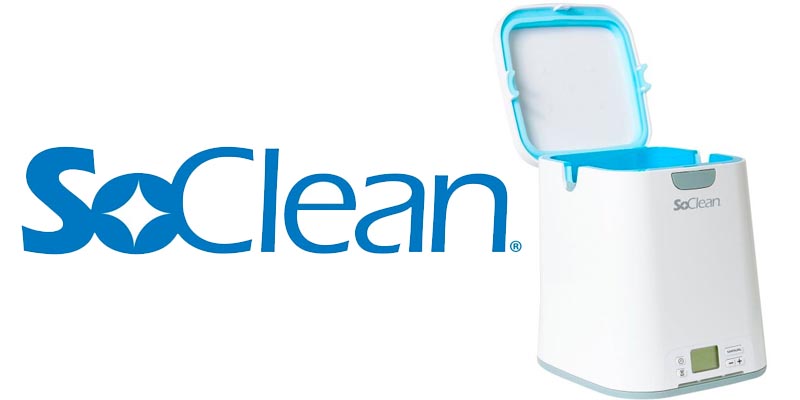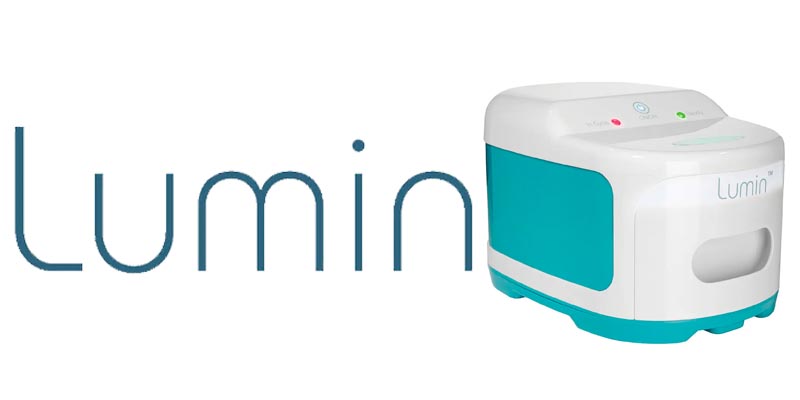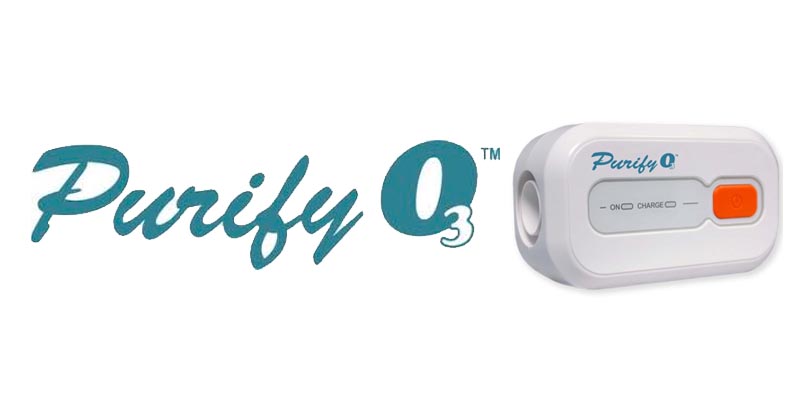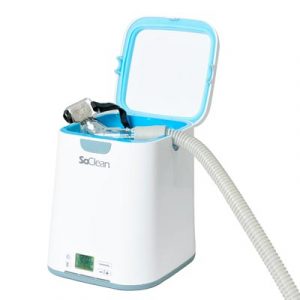CPAP cleaners continue to grow in popularity because they effectively sanitize CPAP machines with little effort. There are several CPAP cleaners available, and choosing one can get confusing. We evaluated 14 CPAP cleaners to help you narrow the options. We researched sanitation technologies, features, warranties and costs. Our four best CPAP cleaners are SoClean 2, Lumin, Sleep8 and Purify 03.
This guide explains the types of CPAP cleaners you can buy and how they work. We discuss the technology, hidden costs, safety issues and how the device can keep you from getting sick. You will also find helpful frequently asked questions about CPAP cleaners later in this guide.
Top CPAP Cleaner Buying Tips:
- Find a CPAP cleaner that fits your lifestyle
- Be sure the cleaner has an adapter that fits your CPAP brand
- Ozone-based sanitizers should be used in the morning to ensure odors dissipate
Tips for a Wise Buyer
A Journal of National Sleep Medicine study concluded that your CPAP could cause respiratory infections if not cleaned properly. Many CPAP machines use heated water to humidify the oxygen for the patient’s comfort. This water can become contaminated due to dirty filters or humidifying tanks. CPAP masks can quickly get grimy and are subject to mold without sufficient cleaning.
Your CPAP machine is not self-cleaning, and over time bacteria can get into the water reservoir and mold can grow on the mask. A CPAP cleaner ensures the device stays free of contaminants. Using one of these sanitizing systems is simple and much less time-consuming compared to disassembling and cleaning a CPAP by hand.
Do-It-Yourself CPAP Cleaning
Ideally, you should clean your CPAP every day to ensure you do not develop an upper respiratory illness. To clean your CPAP by hand, you need to remove the mask, hose and humidification chamber and soak them in hot, soapy water.
Some people use a vinegar or bleach and water solution instead of soap, but whatever method you use, you’ll need to rinse all components thoroughly. Then, all parts need to hang to dry completely to ensure germs and mold have no breeding ground.
Cleaning and drying a CPAP by hand is time-consuming
If your CPAP has a reusable filter, the manufacturer probably recommends a weekly cleaning. Filters need to air dry completely before being used again. Disposable filters get replaced monthly or sooner if you can see dirt.
How CPAP Cleaners Work
A CPAP cleaner completely sanitizes your device quickly. Most CPAP cleaners ensure the parts are dry before you use them again, so there’s no concern about mold, mildew or germs spreading. This reduces or eliminates the chances of developing an upper respiratory infection or other illness.
There are three types of CPAP cleaners:
Ultrasonic tanks use cleansing tablets dissolved in hot water, similar to denture cleanser tablets. The tank holds the hose or mask, and ultrasonic pulses work with the cleanser to remove particles. Ultrasonic tanks probably don’t work much better than hand-washing. You need to hang the tubing and mask to dry, and you may not be able to put the humidification chamber into the tank.
Activated oxygen (ozone) is used in many modern CPAP cleaning devices to remove contaminants effectively. One of our top picks in this category can clean your entire system without taking it apart. Most others require you to remove the mask, hose and humidification chamber from the CPAP for cleaning, but once the cycle completes, there’s not a trace of moisture.
UV light is the newest technology in CPAP sanitation. You may have to clean the mask, hose and water chamber separately, but this UV light cleans faster than other methods. UV light has been used for medical disinfection for years, adding some extra assurance that these CPAP cleaners are very reliable.
| CPAP Cleaner Costs and Features | ||
|---|---|---|
| Type | Pros | Cons |
| UV Light $250 to $350 |
-Cleans without water – Fastest method |
Separate cleaner required for the hose |
| Activated Oxygen $80 to $360 |
– Keeps parts dry – Push a button to clean |
Ozone smell takes two or more hours to disappear |
| Ultrasonic Tank $60 to $175 |
– Less expensive – Effective if used daily |
Uses water, so parts need time to completely dry |
Are Ozone CPAP Cleaners Safe?
As you research CPAP cleaners, you will find information that says using ozone, also called activated oxygen, is unsafe. These claims are primarily from brands that use other technologies to sanitize CPAP machines. Ozone safely cleans, and as a gas, does not stay in the CPAP components.
Ozone leaves a smell that some people compare to fresh laundry. This scent doesn’t sound bad, but you wouldn’t want to try to sleep with the aroma permeating through your CPAP. Clean your CPAP with one of these devices in the morning, then allow the parts to sit in fresh air throughout the day. There should be no smell by the time you use your CPAP again.
Ozone is safe in CPAP cleaners if allowed time to dissipate
We also found claims that ozone can break down CPAP masks and other parts. However, the National Ozone/Oxidation Association reports that ozone does not damage parts when used as intended by the manufacturer.
CPAP Cleaner Hidden Costs
The cost of using a CPAP cleaner may not end when you take it home from the store or receive the shipment at your door. While these expenses are mostly minimal, they contribute to the total cost of a CPAP cleaner.
- Many CPAP cleaners have filters that need replacing every three to six months. Filters typically cost from $10 to $40.
- All CPAP cleaners we researched directed users to cleanse face masks with special wipes. The wipes clean accumulated facial oils and other dirt, and cost around $7 to $10 per container.
- You may want to use a special liquid detergent to remove odors and residues from your CPAP machine before you first use your cleaner device. This is only necessary if you’ve been washing the parts by hand and notice a lingering smell or buildup. The cost is around $10.
- If you buy an ultrasonic CPAP cleaner, you’ll pay $4.50 to $6 per month for cleaning tablets.
Do You Need a CPAP Cleaner?
A CPAP cleaner is not a necessity since you could wash the parts by hand. However, many people do not have the time or inclination to clean their CPAP daily, which increases the risk of contamination. Finding a way to dry the tubing thoroughly is a problem as well.
A CPAP cleaner saves a significant amount of time and ensures your CPAP is sanitary. Our top picks for CPAP cleaners all remove the guesswork involved with ensuring the equipment is completely dry before use.
Our Search for the Best CPAP Cleaners
1. We researched an extensive list of 14 CPAP cleaners.
2. We evaluated these products based on our expert-guided buying criteria: sanitation technologies, features, warranties and costs.
3. We provide you with the best CPAP cleaners for consideration.
Our search began with 14 CPAP cleaners and concluded with four recommendations. Our assessment included the following steps:
We evaluated the retail marketplace for CPAP cleaners. We narrowed our search starting with customer and expert reviews. We removed companies rating three or fewer stars from consideration.
We considered convenience. We ruled out CPAP cleaners such as ultrasonic models because they do little to reduce the time it takes to clean and dry a CPAP by hand.
We shopped for CPAP cleaners following our own advice, using wise buyer standards. We evaluated the CPAP cleaners offered under each brand, the cost and other criteria. We excluded CPAP cleaners that made exaggerated claims about efficiency or effectiveness.
CPAP Cleaner Reviews
After our evaluation, we selected the best CPAP cleaners: SoClean 2, Lumin, Sleep8 and Purify 03. Each stood out above the competition.
SoClean 2 Review
Convenient Option |
SoClean Inc. created the SoClean 2 CPAP cleaner to be smaller than the original SoClean. This model needs only one square foot of space. SoClean 2 attaches to your CPAP machine and pumps activated oxygen to sanitize the equipment without having to take the CPAP apart. A filter converts the activated oxygen back to breathable air.
SoClean 2 cleans without water, so your CPAP dries completely. The unit comes with a 30-day risk-free trial and two-year warranty. You need to replace the filter and check the valve every six months.
Lumin Review
Great Time-Saver |
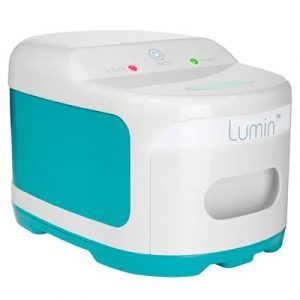
Lumin Review
The Lumin CPAP cleaner from 3B Medical Inc. emits a high energy UV-C light to clean your CPAP mask and water chamber in minutes. This germicidal light kills most surface mold or bacteria in five minutes. To clean the hose, you’ll have to buy the Lumin Bullet separately, which disinfects in about one minute.
Although Lumin is designed specifically to clean CPAP equipment, you can clean any item that fits into the unit. People clean hearing aids, cell phones, toothbrushes and other items in their Lumin CPAP cleaner. Lumin’s benefits are that the cleaning process leaves no residue, uses no chemicals and is environmentally friendly.
Sleep8 Review
Portable Option |
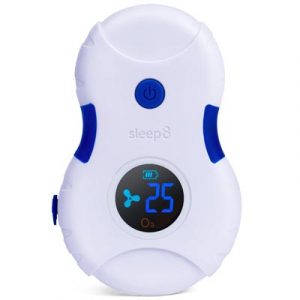
Sleep8 Review
The Sleep8 CPAP cleaner weighs just over 1 pound and works well at home and while you travel. This device has a flexible bag-like cleaning chamber you can fold and pack into luggage or a tote bag. Sleep8 runs on battery power, or you can plug it into a standard electrical socket.
Sleep8 cleans the CPAP mask, tubing and humidifier in about one hour. The cleaning chamber seals, so no ozone leaks during the disinfection process. The Sleep8 device comes with an 18-month warranty, and the charger has a one-year warranty. Bags must be changed every 90 days.
Purify O3 Review
Affordable Option |
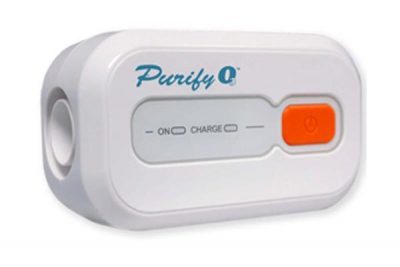
Purify O3 Review
While the Purify 03 from Responsive Respiratory, Inc. is not as compact as the Sleep8, this CPAP cleaner can easily be used on the road as well as at home. The cleaning components fit into a storage bag which doubles as the cleaning chamber. Your CPAP hose, mask and humidification chamber get cleaned in about 35 minutes.
Purify 03 uses activated oxygen, has a two-year warranty and costs under $200. This CPAP cleaner is quiet, and there are no filters or other parts requiring frequent replacement.
Related CPAP Cleaner Resources
Readers of this CPAP cleaner guide content also found this related content helpful.
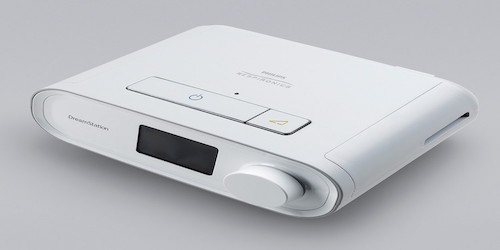
Best CPAP Machines
This guide covers CPAP machine types, features and costs as well as a snapshot of the three best CPAP machine companies on the market today.
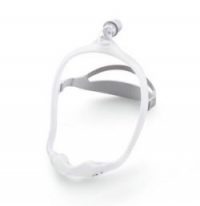
Best CPAP Masks
We considered the top twelve CPAP Masks and after a thorough review, we have selected the top five.
Frequently Asked Questions About CPAP Cleaners
Does Medicare pay for CPAP cleaners?
While Medicare and health insurance cover the cost of a CPAP, neither pay for CPAP cleaners. If you have a Medicare Advantage plan, check to see if you have coverage for a cleaner. Medicare Supplement insurance may pay for a CPAP cleaner depending on your policy.
Are the low-cost CPAP cleaner filters and parts sold online safe to use?
If you find bargain-basement priced filters or other parts online, proceed with caution. There have been reports of counterfeit CPAP cleaner parts and filters sold on Amazon and eBay. These cheap CPAP parts can damage your cleaner or disrupt the seal on ozone machines.
You may find sales and discounts on legitimate filters and parts. Just remember if a deal seems too good to be true, it probably is.
Is there any way to finance a CPAP cleaner?
CPAP cleaner companies that sell directly to the consumer usually offer financing deals with six to 12 months to pay. Some retailers provide financing from time to time. If paying upfront is difficult, ask the seller about financing.
Do all CPAP machines work with each CPAP cleaner?
UV and ozone-based cleaners may not be compatible with all CPAP machines. We found compatibility problems with some ResMed CPAPs and tubing on mini CPAP machines. Ask a manufacturer’s representative if the model you’re considering works with your CPAP if you have any doubts.
Concluding Thoughts about CPAP Cleaners
Bottom Line:
A CPAP cleaner will extend the life of your CPAP machine
A CPAP cleaner not only saves hours each week, but these devices also ensure your CPAP gets sanitized. Use a CPAP cleaner to help ensure you stay healthy and to avoid mold and bacteria from contaminating your machine. Consider your needs, budget and the benefits of our best CPAP cleaners to make a choice for your lifestyle.
The Best CPAP Cleaner
| CPAP Cleaner | Best For | |
|---|---|---|
| 1 | SoClean2 | Convenient Option |
| 2 | Lumin | Great Time-Saver |
| 3 | Sleep8 | Portable Option |
| 4 | Purity O3 | Affordable Option |
